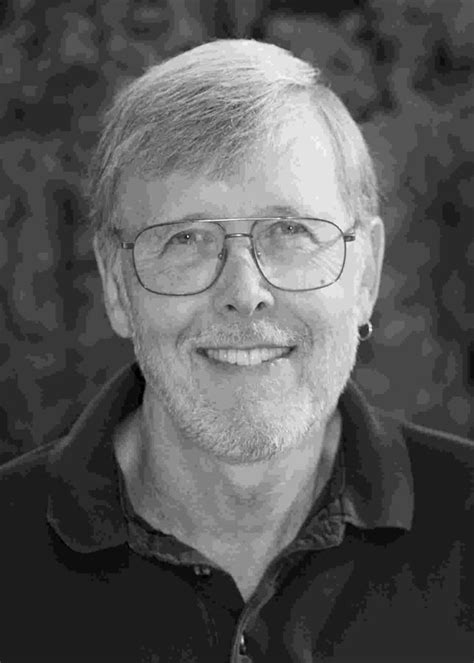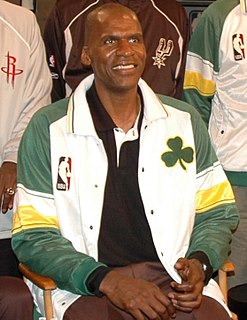A Quote by David Berlinski
If moral statements are about something, then the universe is not quite as science suggests it is, since physical theories, having said nothing about God, say nothing about right or wrong, good or bad. To admit this would force philosophers to confront the possibility that the physical sciences offer a grossly inadequate view of reality. And since philosophers very much wish to think of themselves as scientists, this would offer them an unattractive choice between changing their allegiances or accepting their irrelevance.
Quote Topics
About
Accepting
Admit
Bad
Between
Changing
Choice
Confront
Force
God
Good
Having
Inadequate
Irrelevance
Moral
Much
Nothing
Offer
Physical
Physical Science
Possibility
Quite
Reality
Right
Said
Say
Science
Sciences
Scientists
Since
Something
Statements
Them
Themselves
Then
Theories
Think
Unattractive
Universe
Very
View
Wish
Would
Wrong
Related Quotes
It is rational to choose the right means to your ends to develop very elegant abstract formal theories of rational choice, and then turn these into what look like moral theories. Philosophers tend to be ravished by the formal beauty of such theories, and they don't pay much attention to the fact that our human limitations make them pretty useless in practice, while the simple point about instrumental reasoning is too shallow to be of much real moral interest.
Philosophers often think all scientists must be scientific realists. If you ask a simple question like "Are electrons real?" the answer will be "Yes". But if your questions are less superficial, for example whether some well-known scientist was a good scientist. Then, they had insisted that only empirical criteria matter and that they actually did not believe in the reality of sub-atomic entities. Ask "If that turned out to be true, would you still say they were good scientists?" The answer would reveal something about how they themselves understood what it is to be a scientist.
I think one reason is that philosophers are more insecure to speak accessibly because non-philosophers are skeptical that philosophers have any special expertise. After all, all people - not just philosophers - have attitudes and points of view on various philosophical questions, and they rather resent being told that there are professionals who can think about these things better.
Philosophers of science constantly discuss theories and representation of reality, but say almost nothing about experiment, technology, or the use of knowledge to alter the world. This is odd, because 'experimental method' used to be just another name for scientific method.... I hope [to] initiate a Back-to-Bacon movement, in which we attend more seriously to experimental science. Experimentation has a life of its own.
In the central cases of physical pain, then, it appears that at least part of what is bad about our condition is the way it makes us feel. Here there seem to be no problems with a purely mental state account, no counterpart to the experience machine that could bring us to think that we are being deceived by mere appearances. [...] If I am suffering physical pain then I can be quite wrong about the organic cause of my affliction, or even about whether it has one, without that error diminishing in the slightest either the reality of my pain or its impact on the quality of my life.
A century ago mainstream science was still quite happy to countenance vital and mental powers which had a 'downwards' causal influence on the physical realm in a straightforwardly interactionist way. It was only in the middle of the last century that science finally concluded that there are no such non-physical forces. At which point a whole pile of smart philosophers (Feigl, Smart, Putnam, Davidson, Lewis) quickly pointed out that mental, biological and social phenomena must themselves be physical, in order to produce the physical effects that they do.
Methodological naturalism gives advice to scientists about what they should include in their theories. There is a second type of methodological naturalism that gives advice to philosophers, which I call "methodological naturalismp." It says that the methods that philosophers should use in assessing philosophical theories are limited to the methods that scientists ought to use in assessing scientific theories.
Those who assert that the mathematical sciences say nothing of the beautiful or the good are in error. For these sciences say and prove a great deal about them; if they do not expressly mention them, but prove attributes which are their results or definitions, it is not true that they tell us nothing about them. The chief forms of beauty are order and symmetry and definiteness, which the mathematical sciences demonstrate in a special degree.
Scientists are educated from a very early time and a very early age to believe that the greater scientist is the scientist who makes discoveries or theories that apply to the greatest ambit of things in the world. And if you've only made a very good theory about snails, or a very good theory about some planets but not about the universe as a whole, or about all the history of humankind, then you have in some sense accepted a lower position in the hierarchy of the fame of science as it's taught to you as a young student.
Science is uncertain. Theories are subject to revision; observations are open to a variety of interpretations, and scientists quarrel amongst themselves. This is disillusioning for those untrained in the scientific method, who thus turn to the rigid certainty of the Bible instead. There is something comfortable about a view that allows for no deviation and that spares you the painful necessity of having to think.
Most people would never admit it, but they'd been bitching since they were born. As soon as their head popped out into that bright delivery-room light, nothing had been right. Nothing had been as comfortable or felt so good. Just the effort it took to keep your stupid physical body alive, just finding food and cooking it and dishwashing, the keeping warm and bathing and sleeping, the walking and bowel movements and ingrown hairs, it was all getting to be too much work.




































